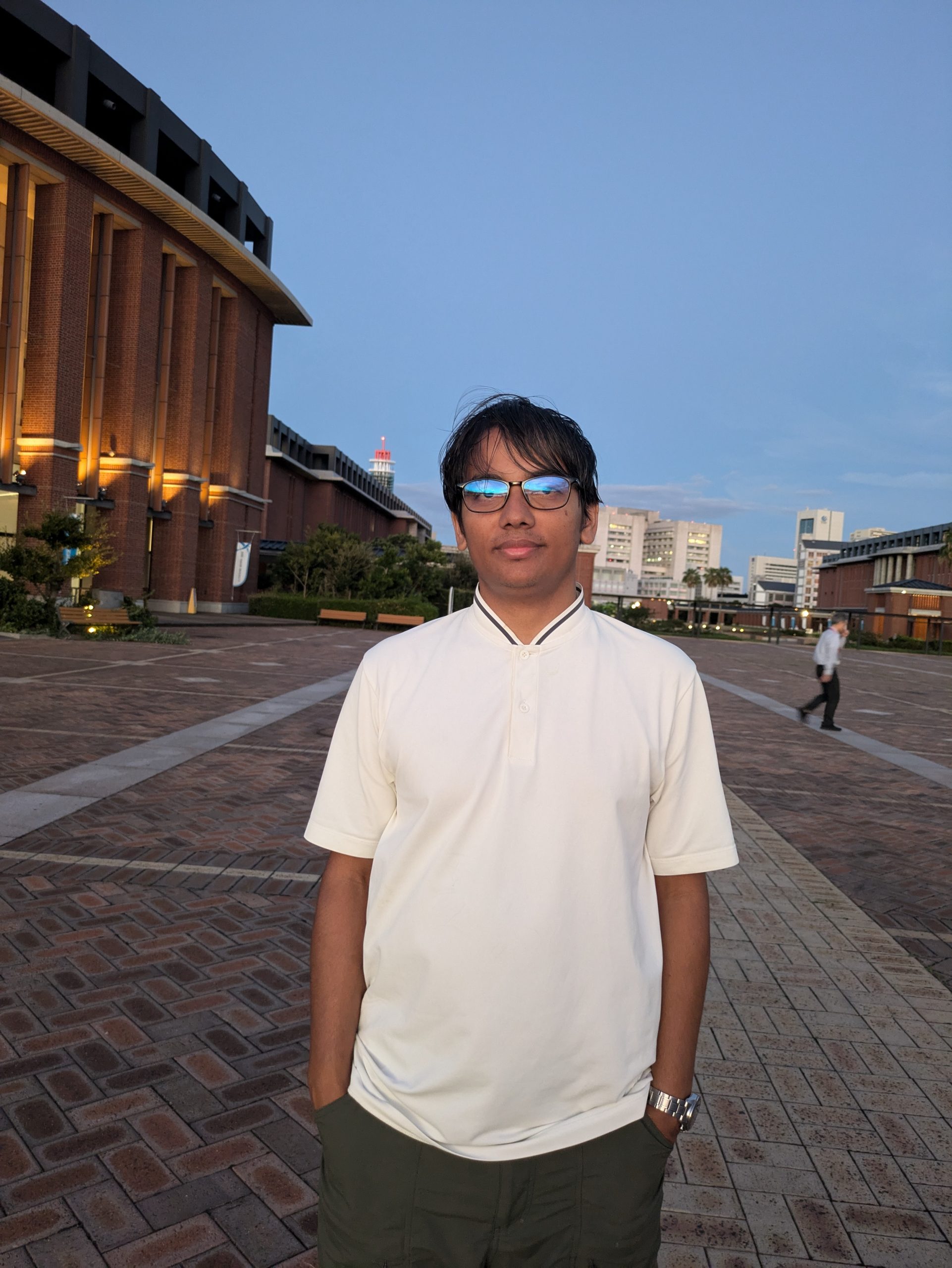TOP
 Events & Outreach
Events & Outreach
 R-CCS Cafe
R-CCS Cafe
 The 271st R-CCS Cafe (Oct 11, 2024)
The 271st R-CCS Cafe (Oct 11, 2024)
The 271st R-CCS Cafe (Oct 11, 2024)
Japanese| Date | Fri, Oct 11, 2024 |
|---|---|
| Time | 3:00 pm - 5:00 pm (3:00 pm - 3:40 pm Talks, 3:50 pm - 4:10 Discussions, 4:10 pm - Free discussion and coffee break) |
| City | Kobe, Japan/Online |
| Place | Lecture Hall (6th floor) at R-CCS, Online seminar on Zoom
|
| Language | Presentation Language: English Presentation Material: English |
| Speakers |
Lingqi Zhang High Performance Artificial Intelligence Systems Research Team, Postdoctoral Researcher  Md Anowar Hossain Discrete Event Simulation Research Team, Postdoctoral Researcher  |
Talk Titles and Abstracts
1st Speaker: Lingqi Zhang
Title:
Overcoming the Gap Between Compute and Memory Bandwidth in Modern GPUs
Abstract:
The imbalance between compute and memory bandwidth has been a long-standing issue. Despite efforts to address it, the gap between them is still widening. This has led to the categorization of many applications as memory-bound kernels. This dissertation centers on memory-bound kernels, with a particular emphasis on Graphics Processing Units (GPUs), given their rising prevalence in High-Performance Computing (HPC) systems. In this dissertation, we initially focus on the evolution trend of GPU development in the last decades. Examples include cooperative groups (i.e., device-wide barriers), asynchronous copy of shared memory (i.e., hardware prefetching), low(er) latency of operations, and larger volume of on-chip resources (register files and L1 cache). This dissertation seeks to utilize the latest GPU features to optimize memory-bound kernels. Specifically, we propose extending the kernel's lifetime across the time steps and taking advantage of the large volume of on-chip resources (i.e., register files and scratchpad memory) to reduce or eliminate traffic to the device memory. Furthermore, we champion a minimum level of parallelism to maximize the available on-chip resources. Based on the strategies, we propose a general execution model for running memory-bound iterative GPU kernels: PERsistent KernelS (PERKS) and a novel temporal blocking method, EBISU. Evaluations have shown outstanding performance in the latest GPU architectures compared with counterpart state-of-the-art implementations.
2nd Speaker: Md Anowar Hossain
Title:
Cognitive Driver’s Sensitivity for Next-generation Automated Cruising Traffic
Abstract:
A traffic flow model, the so-called Taillight Adapting traffic model, is developed considering the driver's activities impact following the taillight effect of the preceding vehicle, which is switched on and off based on the vehicle's accelerations and decelerations. To quantify a driver's sensitivity to the velocity gap, we introduced the concept of the new driver's sensitivity function, which has twofold formulations. The first formulation follows the HDDS model1, which presumes the sensitivity is dependent on a headway distance. The second formulation presumes that the sensitivity depends on a velocity gap, which might be informed by the taillight of a preceding vehicle. We have calibrated the neutralizing proficiency of a traffic flow field for the HDDS and proposed the Taillight Adapting model by utilizing the linear stability theory. Finally, a series of numerical simulations have been carried out of the improved Taillight Adapting model and conventional FVD model to investigate how the traffic flow field for the Taillight Adapting model behaves differently from the conventional FVD model.
Important Notes
- Please turn off your video and microphone when you join the meeting.
- The broadcasting may be interrupted or terminated depending on the network condition or any other unexpected event.
- The program schedule and contents may be modified without prior notice.
- Depending on the utilized device and network environment, it may not be able to watch the session.
- All rights concerning the broadcasted material will belong to the organizer and the presenters, and it is prohibited to copy, modify, or redistribute the total or a part of the broadcasted material without the previous permission of RIKEN.
(Oct 7, 2024)
